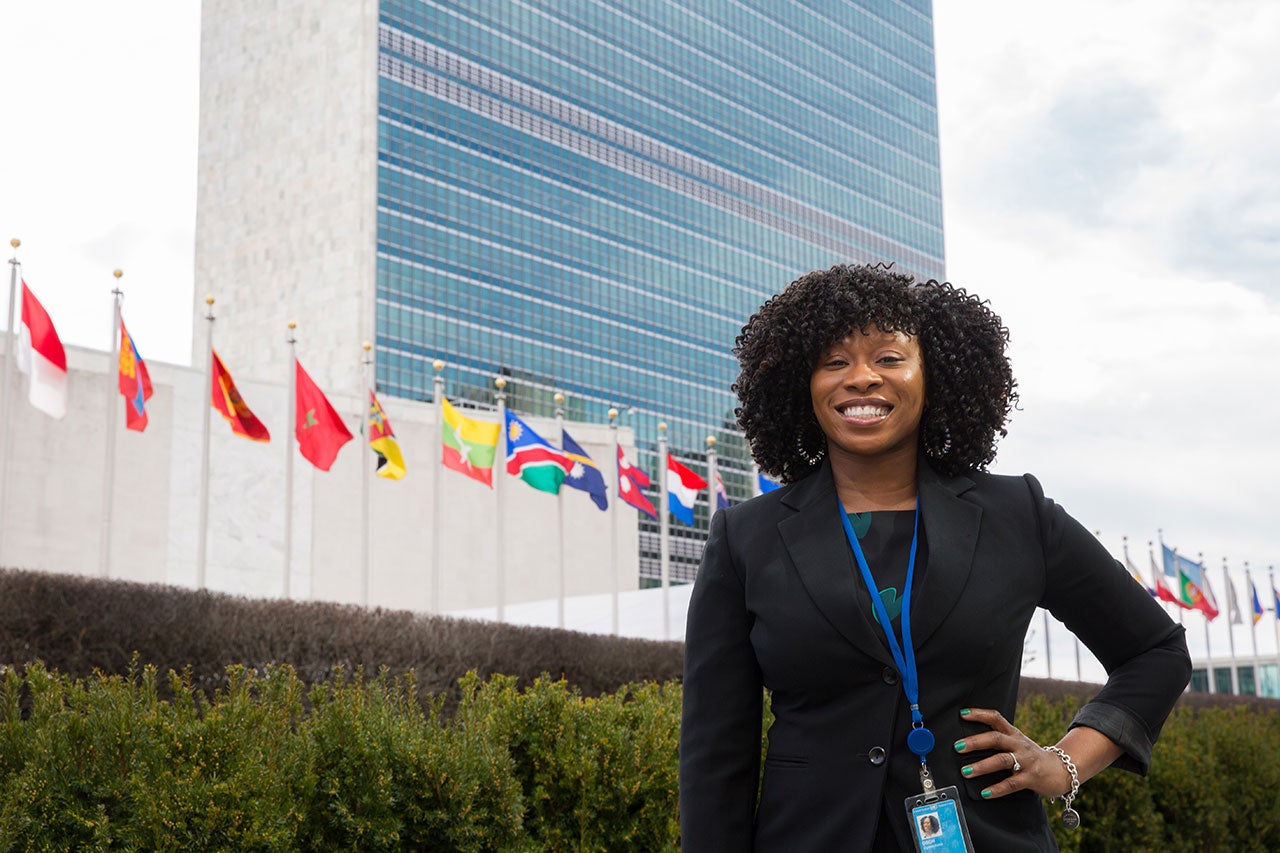They say when you’re where you’re supposed to be, you just know. It just feels right. Kome Oboh ’06 knows that feeling – she always knows where she belongs.
And, if there was any doubt she was in the right place when she took the United Nations employment exam, it was gone by her first day on the job. No question about it: Oboh had found her place.
But it wasn’t an overnight journey. The hiring process at the U.N. took a year and included a placement exam, which was well worth the wait.
“I really enjoy what I do,” says Oboh, who now works in the Corporate Division of the U.N.’s Office for the Coordination of Humanitarian Affairs. OCHA is responsible for bringing together humanitarian actors to ensure a coherent response to emergencies.
For Oboh, the diverse and fast-paced culture at her previous jobs at DC Comics and Warner Bros. in New York City prepared her for her current role at the U.N.
“I am inspired by the mission statement of the United Nations, and the people that I work with,” Oboh observes. “And you can’t beat that.”
A Good Place to Learn
Something else you can’t beat: the “postcard-perfect backdrop” of the College. The minute she saw the CofC campus, Oboh knew she was in the right place.
“I immediately fell in love with it,” she says with a smile. “I thought the grounds were great, there was so much culture, so much history, and the architecture was beautiful.”
And, pretty soon, she had fallen in love with the academics, too.
 “I majored in communication because I thought it was an umbrella for all other subjects: There was media law, business law, gender and culture studies, mathematics, philosophy, English – all incorporated in the communication curriculum,” she says, noting that communication faculty members Tom Heeney, Robert Westerfelhaus and Celeste Lacroix had particularly strong impacts on her. “Those professors have this democratic way of teaching – everybody in a circle for a debate of minds, all opinions were welcomed. I’m not the kind of person that learns from someone just standing in front of a chalkboard, so their incorporating us into the conversation and the lessons just made me enjoy it so much more.”
“I majored in communication because I thought it was an umbrella for all other subjects: There was media law, business law, gender and culture studies, mathematics, philosophy, English – all incorporated in the communication curriculum,” she says, noting that communication faculty members Tom Heeney, Robert Westerfelhaus and Celeste Lacroix had particularly strong impacts on her. “Those professors have this democratic way of teaching – everybody in a circle for a debate of minds, all opinions were welcomed. I’m not the kind of person that learns from someone just standing in front of a chalkboard, so their incorporating us into the conversation and the lessons just made me enjoy it so much more.”
Feeling welcomed and included in a place, of course, does a lot for that sense of belonging. Oboh, a Nigerian native, feels very grateful to now call America her home in addition to Nigeria.
“Nigeria is my homeland,” Oboh says. “It will always be home to me. But I have also made a home for myself here in America and the United Nations, too.”
And – no matter where you are in life – there’s no place like home.




